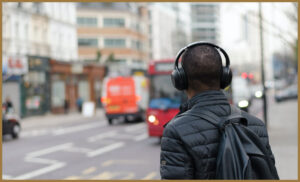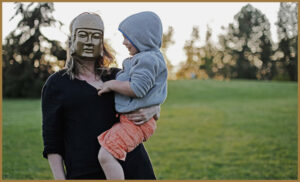For people with autism, isolation is a double-edged sword. It might be that when the world just isn’t adding up, I push people away to find myself. However, when I do manage to get my inner zen on and recentre, it’s often the case that I have detached so far from everyone else, that I feel just as lost as before.
To paraphrase a tweet that has been making the rounds recently: ‘I love being alone but hate feeling alone’ and, within the autism community, a community where 79% report regularly feeling alone, this is not uncommon (especially in a time when social distancing has all but killed social opportunities). So, what can be done to better understand and combat loneliness on the spectrum?

When Autistic Isolation is Self-Decided:
Deriving from the Greek word ‘auto’ meaning ‘self’, autism’s namesake was originally chosen to reflect how autistic people will commonly be found on our own. Put another way this means that, since its first diagnosis, autism has always been seen as a kind of self-ism, a term which supposedly defines how members of our community are drawn to isolation like a lockdown prepper to loo roll.
In principle, this isn’t an entirely inept concept either, as many autistic people will, at some point or another, choose the company of themselves over the hustle and bustle of groups. However, it’s important to recognise that this isn’t directly a trait of autism, but actually a response to the sensory disruption and unpredictable atmospheres found in gatherings.
Nevertheless, because humans are naturally social creatures, this has come to be seen as ‘odd’ and many parents/carers will go out of there way to try and buddy up autists in groups and teams. Yet, speaking from experience, pushing autistic people into these settings only confirms our belief that we have no control when it comes to other people’s actions and, consequently, we want to stick our heads back into our shells.
This isn’t to say that autistic people should be left to our own devices though, but I’m not saying that we shouldn’t be either because, as research has demonstrated, isolation can have incredible benefits for both autistic people and non-autistic people alike, including:
- Increased productivity
- Increased creativity
- Improved concentration
- Greater self-understanding
- Greater self-worth
- Reduced Stress
- Better emotional processing
- More opportunities to finish that Netflix documentary you keep meaning to get round to
Despite this, as anyone who has mixed lots of sugary drinks with a ride on a rollercoaster knows, you really can have too much of a good thing and, subsequently, too much alone time has been linked with depression and increased anxiety. For this reason, the above list shouldn’t be taken for the gospel truth as, inevitably, one’s fortress of solitude can inadvertently become a cage of our own making.

How Autistic People Can Feel Isolated in Crowds:
Although autistic people are quite content with our own company, there are many times when we don’t want to be alone. I mean, at one stage or another, you will probably have had a lengthy conversation with someone on the spectrum about their particular interest and, during these moments, it’s clear that we don’t want to be anywhere else other than the here and now, most likely chatting on about dinosaurs.
Nevertheless, for many autistic people, this is where the differences between being alone and feeling lonely really come into perspective, as it’s not uncommon for autistic people to feel completely secluded even when surrounded by friends.
What I mean by this is that, autistic people are very good at copying what we see, but not so great at mimicking the nuances that come with it. For example, we may see how groups of people become friends but inaccurately note the importance of common shared interests and values. Subsequently, we may then join groups where we assume that we are at fault and we change who we are to fit in.
Known as autistic masking, due to how we disguise ourselves on a surface level to fit in, this act is often spoke badly of for the dangers it causes, such as allowing autistic people to be misled and taken advantage of. However, autistic masking is also dangerous, as it can result in an autistic person being stuck in shallow relationships which don’t provide the emotional fulfilment we all seek on a fundamental level.
Thankfully, it can often take learning who you are not, to learn who you are and, when we break out of these kinds of toxic relationships, we rarely make the same mistake twice. But what can be done to make sure this error is never made in the first place?

How Autistic People Can Beat Isolation
In reality, beating isolation isn’t about finding good company, but a frame of mind in which we aren’t left wanting more at the beginning, middle and end of each day. As such, I wanted to finish today by sharing 3 tips to overcome loneliness in autism – all of which will make a difference whether it be the loneliness we face on our own or the kind we feel when we are lost in a pack.
1. Identity
Trying to understand your place in a community, before understanding who you are as a person, can often feel like trying to complete a jigsaw with your eyes closed. That’s not to say it’s impossible, it’s just that you’re often going to make things a lot more complicated and, inevitably, you’re going to make connections that aren’t quite right.
Avoiding this can be achieved by taking the time to consider what is important to you before meeting people as, depending on your answer, you might find that you’re better suited for other environments i.e. a group to engage in joint activities, a chatroom to share your thoughts and feelings or a speed dating event; if you’re looking to have your heart crushed in as many moments as a minute can provide.
Furthermore, a better self-understanding can help you maintain better relationships – as you can ensure that you are also putting yourself in a setting where you best excel. For example, I don’t do well in loud bars with lots of different voices, and I also don’t do well in absolute silence either. However, if you take me to somewhere where there is a consistent background volume, it can often feel like there’s not a person I can’t schmooze.
2. Effort
When we have been alone for a bit too long, we tend to forget that there are other sides to a conversation. For this reason, it’s important to remember that, when you are out meeting new people, they are also meeting you.
Listening to the thoughts of others and taking the time to do things that they want to do (even if it’s not something you want to) are excellent ways to keep relationships strong/healthy and, you may even find that, when you do step out from your comfort zone, you end up enjoying the unknown activity a lot more than you expected.
Nevertheless, it’s important to keep in mind that a true friend will never force you to do something you really don’t want to and, although it can be tempting, try not to keep score on how many times you did what you wanted to do over what they wanted to do; as nobody wants to feel like their friendship is being scored (something I have, and continue to learn, first-hand).
3. Expectations
When I was younger, I had one best friend – something which is extremely common for many people on the spectrum, as it allows for more consistency. For the longest time, we were thick as thieves. However, one day they made a new friend and became increasingly more interested in football (which I really wasn’t). As everything did at that time, this made me angry because I thought that my friend was mine and mine alone and, after a rather heated confrontation, I ended up losing them altogether.
From a young age, this highlighted the importance of managing expectations when it comes to having friends and meeting people, as you should always expect that there may be one or two things that you don’t meet eye to eye on and, furthermore, whether it’s because you mentally outgrown each other or life tears you apart, you should never assume that a friendship can last forever.
This doesn’t mean that friendships should be seen as disposable though. In fact, I encourage everyone to appreciate every moment you have with those who you let into your life. However, to avoid being left high and dry, this does demonstrate why you should never let a slight indifference interfere with a good friend and, additionally, never close yourself of from meeting new people as, when tackling autism isolation, the more really is the merrier.

Carry on the Conversation:
What are your tips for overcoming autistic isolation? Let me know in the comments below. And, if you would like to learn more about how many of the autism charities are currently trying to tackle the loneliness caused by the Covid crisis, then be sure to check out The Top 5 Pieces of Autism News for September 2020.
As always, I can also be found on Twitter @AutismRevised, on Instagram @autisticandunapologetic and via my email: AutisticandUnapologetic@gmail.com.
If you like what you have seen on the site today, then show your support by liking the Autistic & Unapologetic Facebook page. Also, don’t forget to sign up to the Autistic & Unapologetic newsletter (found on the sidebar on laptops and underneath if you are reading this via mobile) where I share weekly updates as well as a fascinating fact I have found throughout the week.
Thank you for reading and I will see you next week for more thoughts from across the spectrum.


